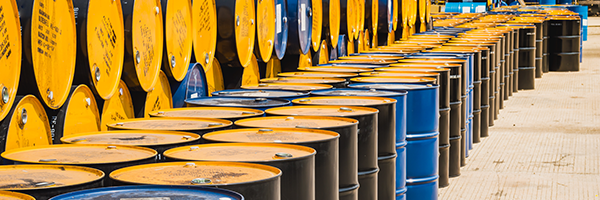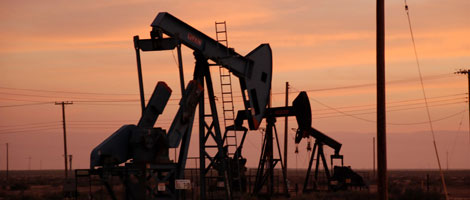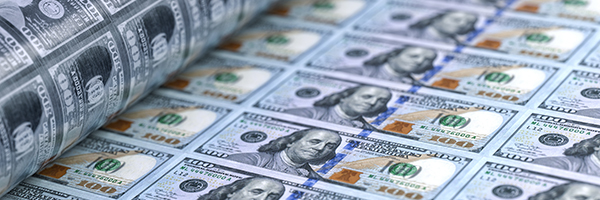Morning Briefing

March 17, 2022 | Daily JAM, Morning Briefing |
Friday, March 18, is a triple-witching day in the options market where roughly $3.5 trillion of single-stock and index-level options are set to expire, according to Goldman Sachs. At the same time the market wills the rebalancing of benchmark indexes, including the Standard & Poor’s 500.

March 16, 2022 | Daily JAM, FXI, Jubak Picks, Morning Briefing, Perfect Five-ETFs, TCEHY, Top 50 Stocks |
Yesterday, March 15, I was thinking that I wished I didn’t own any China stocks at all. Today, March 16, I wished I owned more. Lot’s more.

March 15, 2022 | Daily JAM, Jubak Picks, Morning Briefing |
Oil prices collapsed. And airlines reported better than expected pick up in traffic. So airline stocks soared with the most stressed operators showing the biggest gains in their shares. Delta Air Lines (DAL) closed up 8.70% on the day. United Airlines (ULA) picked up 9.19%. And American Airlines (AAL) gained 9.26%.

March 14, 2022 | Daily JAM, Morning Briefing |
The Chinese government is holding to its Zero tolerance policy and has imposed shutdowns on a large part of the country’s economy to suppress China’s largest surge of OCovid-19 infections since the beginning of the Pandemic.
China has ordered lockdowns in some of its largest factory cities, including Shenzhen, the city that is China’s technology center. The city of 20 million stopped buses and subways on Sunday night and ordered business to close except for supermarkets, farmers’ markets, pharmacies, and port facilities. Donggun, another huge factory city near Shenzhen went into lockdown today. The lockdowns will disrupt companies around the world from Apple (AAPL), which will suffer from the shutdown of factories run by the companies that assemble its products, to MGM Resorts International (MGM), which faces restrictions on travel to its Macao casinos.

March 10, 2022 | Daily JAM, Morning Briefing |
Economists surveyed by Bloomberg had projected that inflation, as measured by the Consumer Price Index, would jump to a 7.9% annual rate for February. And that’s exactly what the Labor Department reported today, March 10. That’s a jump from the 7.5% annual rate in January. And it is the fastest annual rate of inflation in 40 years.

March 9, 2022 | Daily JAM, Morning Briefing |
Assuming that House Democrats can resolve a relatively minor last-minute glitch, Congress has agreed on a $1.5 trillion omnibus spending package for the 2022 fiscal year that started in October 2021 that would head off a government shutdown at the end of this week and free up spending of funds already included in the big infrastructure deal of last year.

March 8, 2022 | ALB, CHPT, COP, Daily JAM, DNNGY, EVGO, Morning Briefing, PXD |
The United States will ban imports of oil and natural gas from Russia, President Biden announced Tuesday. U.S. allies in Europe also announced action on the energy front with a plan to cut natural gas imports from Russia by two-thirds in 2022. Even though the White House has said that the long-lead time on the ban would give importers and consumers time to find other sources by the end of 2022, oil futures soared today with the price of West Texas Intermediate, the U.S. crude benchmark, climbing to $126.98 a barrel, up 6.35%, for April delivery as of 12:30 p.m. in New York. International benchmark Brent creek rose 6.52%to $131.24 a barrel for April delivery.

March 7, 2022 | COP, Daily JAM, EQNR, Jubak Picks, LNG, Morning Briefing, PXD, Top 50 Stocks |
I suppose there is something else that could add to the supply of bad news today on oil supply, but we’ve already got a full dance card At 2 P.m. in New York U.S. crude benchmark West Texas Intermediate traded up 5.07% to $121.55 a barrel; international benchmark Brent crude was up 6.24% to $125.48 a barrel. Where to start?

March 4, 2022 | Daily JAM, Morning Briefing |
The U.S. economy added 678,000 new jobs in February. That was the most new jobs since July. Economists surveyed by Bloomberg had expected the economy to add 423,000 jobs in the month. The official unemployment rate fell to 3.8%. Average hours earnings, however, lagged

March 3, 2022 | Daily JAM, Morning Briefing |
Initial claims of unemployment in regular state programs fell by 18,000 to 215,000 in the week ended February 26. The medan estimate of economists surveyed by Bloomberg had been 225,000.

March 2, 2022 | Daily JAM, Morning Briefing |
In as straight forward a statement as the Federal Reserve can make, Fed chair Jerome Powell said the U.S. central bank will start a new cycle of higher interest rates with a 25 basis point increase on March 16. (It takes 100 basis points to make one percentage point.)

March 1, 2022 | Daily JAM, Morning Briefing |
With Russian troops laying siege to Ukraine’s two largest cities, I certainly don’t blame financial markets for a high degree of anxiety. After all investors and traders are also looking at the consequences of massive sanctions piled on Russian banks including the country’s central bank, disruptions of the global grain trade, and energy shortages here, there, and everywhere. The selling today is fundamentally different from yesterday’s (as well as being greater). Some of the selling is an attempt to gain shelter from the Russia war and sanctions storm. Airlines stocks, which will take a hit from higher prices for jet fuel and any drop in the appetite for flying, were down with American Airlines (AL) off 5.57% and United Airlines (UAL) lower by 5.74%. Some of the selling seems a reasonable guess at where there might be problems. U.S. banks are down heavily even though various experts say they have little or no Russia exposure. JPMorgan Chase (JPM) was down 3.77% and Bank of America (BAC) was off 3.91%. But some of the selling is just selling, either to reduce risk or to raise cash, without any specific connection to Russia and the Russia sanctions. Tesla (TSLA) was down 0.70% at the close as and construction aggregate producer Vulcan Materials (VMC) was significantly lower by 3.86%. Fewer states will repave their roads because of the sanctions on Russia’s central bank?















